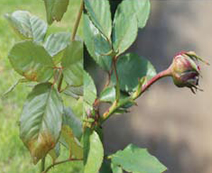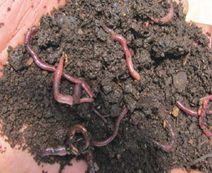 Rose growers have a relatively benign group of insect pests to deal with and so focus most of our pesticidal attention on the fungal disease — powdery mildew — that seem to bedevil us on a yearly basis. However, every few months, we are confronted with a far more virulent fungicidal invader known as downy mildew. Downy mildew is a fairly common term as far as plant diseases go.
Rose growers have a relatively benign group of insect pests to deal with and so focus most of our pesticidal attention on the fungal disease — powdery mildew — that seem to bedevil us on a yearly basis. However, every few months, we are confronted with a far more virulent fungicidal invader known as downy mildew. Downy mildew is a fairly common term as far as plant diseases go.
Downy mildew disease poses an increasing problem in the horticultural industry causing serious losses in many floricultural and greenhouse crops.Downy mildews present a challenge to growers both because the disease can be present but not obvious; and because they are difficult to control with fungicides once established. The pathogens are very different from Powdery Mildews- they attack different plants under very different environmental conditions, and are controlled by different classes of fungicides. Downy Mildew diseases are caused by a group of fungus-like organisms: they are not true fungi, and are similar to Pythium andPhytophthoraspecies. Most of the Downy mildew fungi are host specific and infect only one plant family.


 Mounting violence in Ethiopia has seen many killed, as protests against the government’s economic and human rights policies continues. The tensions at the heart of the crisis are systemic ones, yet what makes the violence particularly worrisome is that foreign investors have become prominent targets. Foreign businesses are being systematically attacked in protest of the government’s development-centric approach, with protesters citing land grabs and unfair competition as key issues.
Mounting violence in Ethiopia has seen many killed, as protests against the government’s economic and human rights policies continues. The tensions at the heart of the crisis are systemic ones, yet what makes the violence particularly worrisome is that foreign investors have become prominent targets. Foreign businesses are being systematically attacked in protest of the government’s development-centric approach, with protesters citing land grabs and unfair competition as key issues.